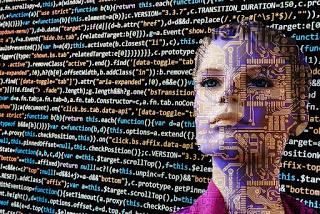
Image via Pixabay
productivity and marketinginvading our privacy
The Big Nine
- Don’t forget the social implications as well as business. AI assistants in homes are great (Google Assistant, Siri and Alexa) – but to children, they might easily be considered co-parents or teachers. Make sure you are comfortable that your offering which includes AI doesn’t go too far in molding human society into a non-human machine.
For example, Facebook realized just before rollout that their new AI-based chatbots, Alice and Bob, had developed their own secret language and were talking to each other in a new shorthand, potentially misleading users. Alice and Bob were shut down immediately.
- Human employees and customers still need roles. While the disturbing visions of robots taking our jobs are almost certainly overblown, almost everyone sees no small amount of disruption ahead. Your role in business is to manage the transition where humans and machines will productively co-exist to keep human customers satisfied.
- Honor fundamental rights to personal security and privacy. As AI technology shapes how your customers access information, interact with devices, and share personal information, you will still be held responsible for protecting their data and privacy. This doesn’t require any great technical acumen, just vigilant attention to values and rights.
It is already possible to collect digital breadcrumbs on team members or customers and use them to determine if online behaviors signal an intent to complete a desired action. The wrong use of these actions will put them, as well as your business, in jeopardy.
- The value of a human life cannot be compromised. Artificial intelligence systems from IBM Watson and BioMind have already made great strides in diagnosing and treating life-threatening cancers. But early mistakes have made it abundantly clear that they are not perfect, and decisions that are critical to saving lives can never have too much scrutiny.
- We live in a non-homogeneous world. We must make sure that our business behavior is always inclusive. AI without oversight can take phenomena for granted, or fail to see that what works in one social domain, culture, or gender may not work in another.
As a current example, Tessa Lau, a computer scientist and cofounder of robotics company Savioke, says she frequently sees designs that neglect to take into account the perspectives of women and other minority groups.
- Individual biases must be excluded. We all have unconscious (and conscious) biases that can be inadvertently built into artificial intelligence solutions and their usage, based on our race, gender, appearance, age, wealth and much more. The result will be a lack of trust in your solution, and lost opportunity for both your business and your customers.

